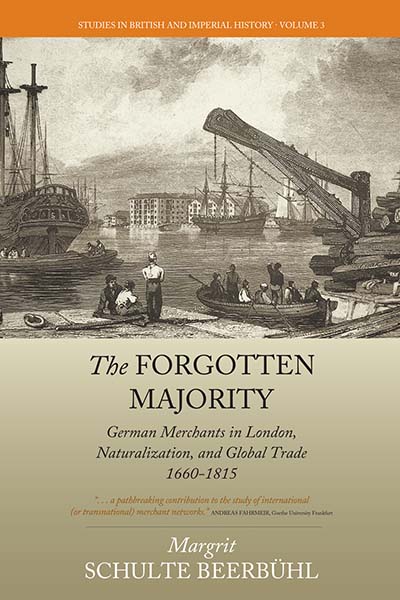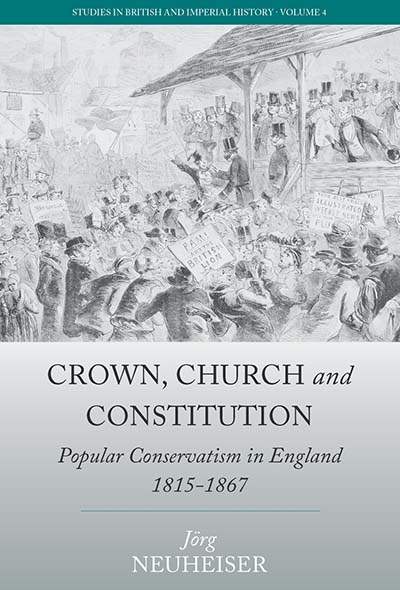
Series
Volume 7
Studies in British and Imperial History
See Related
History JournalsEmail Newsletters
Sign up for our email newsletters to get customized updates on new Berghahn publications.
Subjects, Citizens, and Others
Administering Ethnic Heterogeneity in the British and Habsburg Empires, 1867-1918
Benno Gammerl
Translated from the German by Jennifer Walcoff Neuheiser
312 pages, 25 illus., bibliog., index
ISBN 978-1-78533-709-3 $135.00/£104.00 / Hb / Published (November 2017)
ISBN 978-1-80073-213-1 $34.95/£27.95 / Pb / Published (November 2021)
eISBN 978-1-78533-710-9 eBook
Reviews
“This monograph is a series of impressively researched case studies that propose an ambitious array of new research directions for comparative studies of nineteenth-century European empires…[It] stands as a lively and refreshing initiative in comparative imperial history, one that outlines a number of important questions that will resonate with scholars of British, Habsburg, and other nineteenth-century empires.” • American Historical Review
“Very original in its approach and its structure… A stimulating study!” • Bohemia: A Journal of History and Civilisation in East Central Europe
“Originally published [in German], the book has been expertly rendered into English; the prose is clear and concise. Behind it is an impressive record of archival research in London and Vienna. The work is thought-provoking and promises to hold up as a model for future works of comparative study on empire.” • Austrian History Yearbook
Description
Bosnian Muslims, East African Masai, Czech-speaking Austrians, North American indigenous peoples, and Jewish immigrants from across Europe—the nineteenth-century British and Habsburg Empires were characterized by incredible cultural and racial-ethnic diversity. Notwithstanding their many differences, both empires faced similar administrative questions as a result: Who was excluded or admitted? What advantages were granted to which groups? And how could diversity be reconciled with demands for national autonomy and democratic participation? In this pioneering study, Benno Gammerl compares Habsburg and British approaches to governing their diverse populations, analyzing imperial formations to reveal the legal and political conditions that fostered heterogeneity.
Benno Gammerl is a researcher at the Max Planck Institute for Human Development’s Center for the History of Emotions. He has published widely on imperial history, on the historicity of feelings, and on the contemporary history of homosexuality in Germany.
Subject: History: 18th/19th CenturyColonial HistoryHistory: 20th Century to Present
Area: EuropeCentral/Eastern Europe
Contents
Download ToC (PDF)



